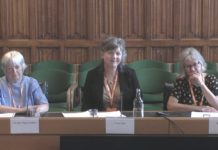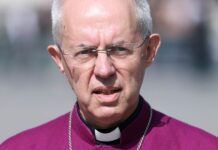Western Cape Religious Leaders have told President Cyril Ramaphosa they are “vehemently” opposed to re-opening liquor sales during the coronavirus lockdown.
“The social effects of alcohol on our community are disastrous,” said the Ven Mark Long, chairperson of the Western Cape Religious Leaders Forum, in a letter to the President.
“Research and our own experience of working on the ground in the cold face of the realities, has shown that the socio-economic effects associated with alcohol abuse include violence, crime, sexual-risk behaviour, gender-based violence and disruptions to family life and work performance.”
The leaders said the effects of intoxicated behaviour during the lockdown would add an additional burden to on “an already straining health sector”, when the main purpose of the lockdown was to ensure the sector faced no extra burdens while it dealt with the COVID-19 pandemic.
The full text of the Forum’s letter follows:
“Your Excellency, President Ramaphosa
“We greet you as faith-based leaders with peace, mercy and solidarity.
“The interfaith movement in the Western Cape reaffirms our full support for Your Excellency and the government’s call for a nationwide lockdown. We are committed to adhering to the guidelines stipulated by our government, which includes the closure and suspension of gatherings at places of worship and the strategic limiting of conventional liberties and economic interests in an attempt to stop the spread of Covid-19.
“As religious leaders of the majority of South Africans in the Western Cape, we continue to guide our communities as to the importance of the lockdown and encourage them to have patience and diligence in adherence to the lockdown regulations. We view this as our patriotic duty and adherence to the regulations under the National Disaster Act.
“Mr. President, whilst we have taken these steps as mandated by your honourable self and our leadership across the various governmental departments, who are diligently navigating our people through this crisis, we bring to your attention the difficulty that the lockdown is having on the most vulnerable in our communities. We have to salute them for their sacrifices in abiding by the lockdown and understanding the importance of it.
“However, in the face of these sacrifices we note with trepidation the call by the liquor association for the relaxation of and opening of the sales of liquor in shebeens and liquor stores across the country. Mr. President, as leaders of faith based institutions we vehemently oppose this application in the strongest terms.
“The social effects of alcohol on our community is disastrous. Research and our own experience of working on the ground in the cold face of the realities, has shown that the socio-economic effects 1associated with alcohol abuse include violence, crime, sexual-risk behaviour, gender-based violence and disruptions to family life and work performance.
“The effects of intoxicated behaviour via the consumption of alcohol will no doubt add an additional burden to our already straining health sector in South Africa. The main purpose behind the lockdown is to ensure that there is no extra burden on this critical sector so that our health facilities can deal with the COVID-19 pandemic.
“Your Excellency, we remind your honourable self of the clarion call that you made to the entire South African nation to have patience during this time. The relaxing of rules and regulations pertaining to the liquor industry cannot be entertained over and above other industries that will ensure an income to the most vulnerable in our society.
“As faith based leaders, we caution and counsel Your Excellency, to take the social harmony of all South Africans into account and remind you of your duty as our commander-in-chief to ensure that we your citizens are protected and treated equally.
“Mr President, we appreciate your leadership, and that of Government Ministers and Departments; the protection of our community by the Armed Forces, Police, and Law Enforcement (although we note with concern instances of excessive force); and Essential Services, along with our doctors, nurses and health services during this pandemic. These are the people who carry the burden of our nation on their shoulders in order to keep us safe.
“We thank you for your indulgence.
“Yours sincerely
“THE VENERABLE MARK R D LONG
Chairperson”



